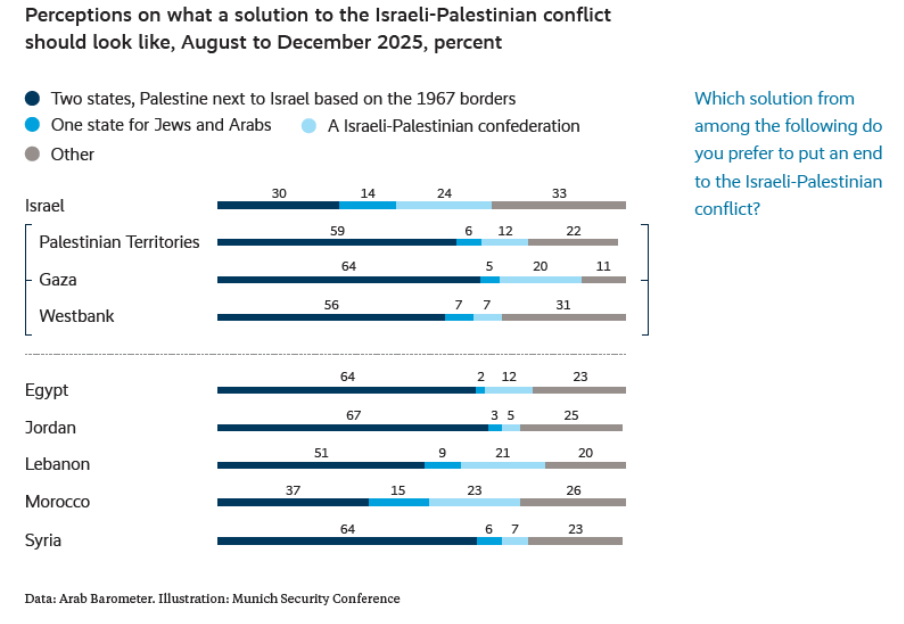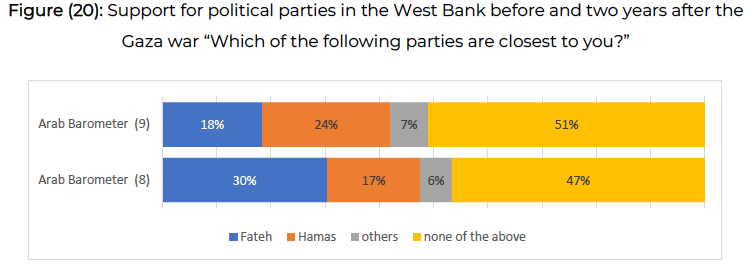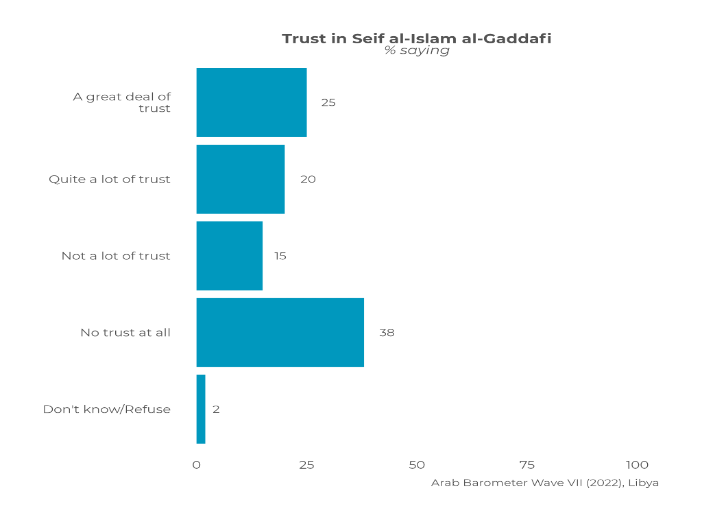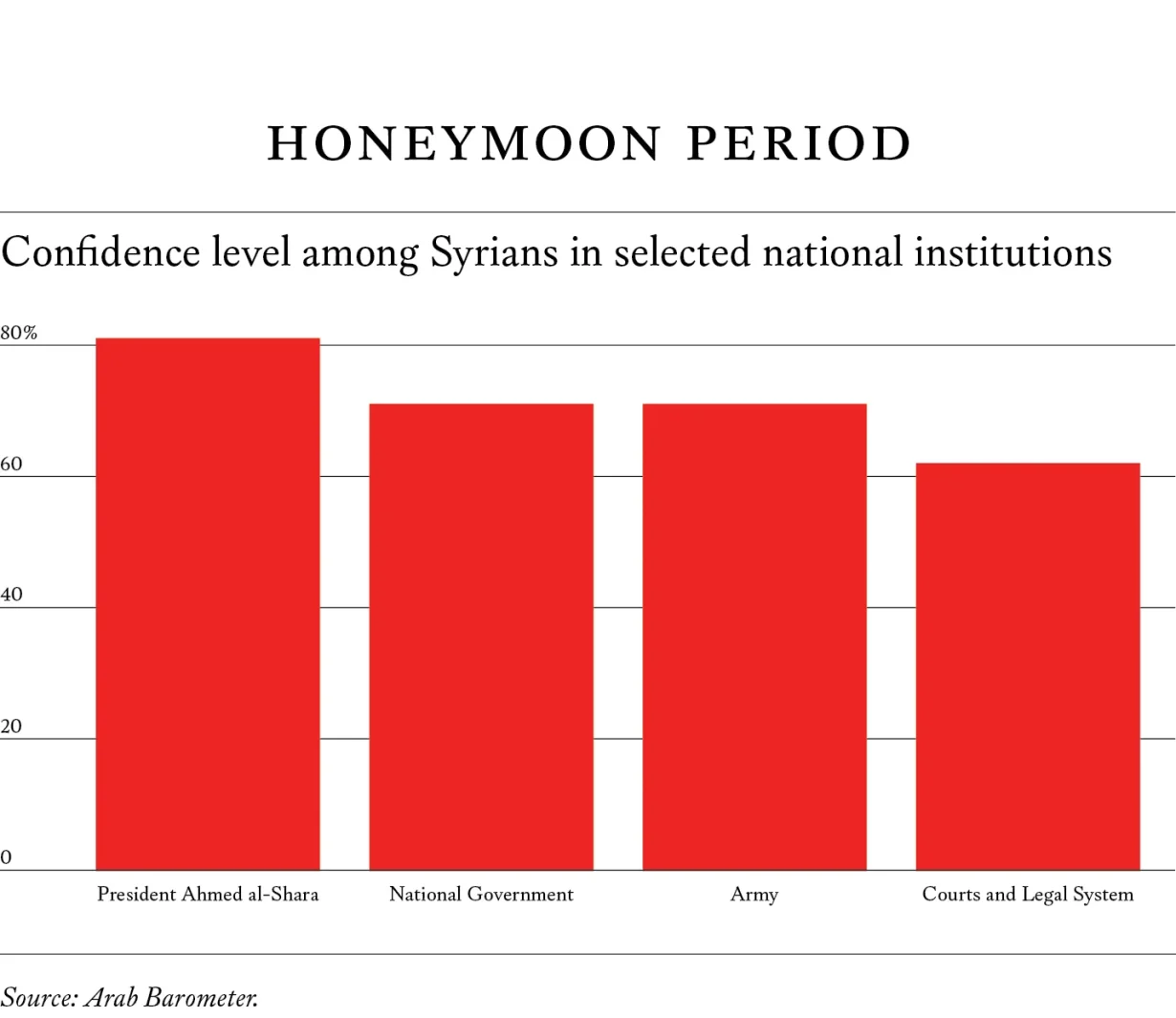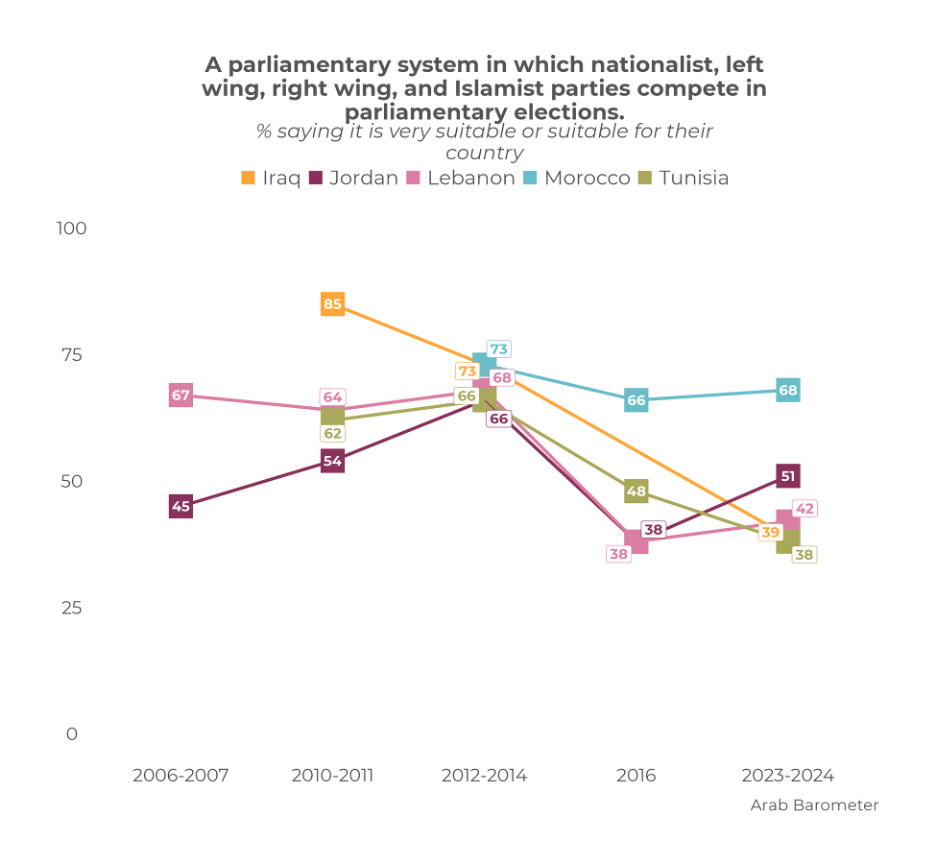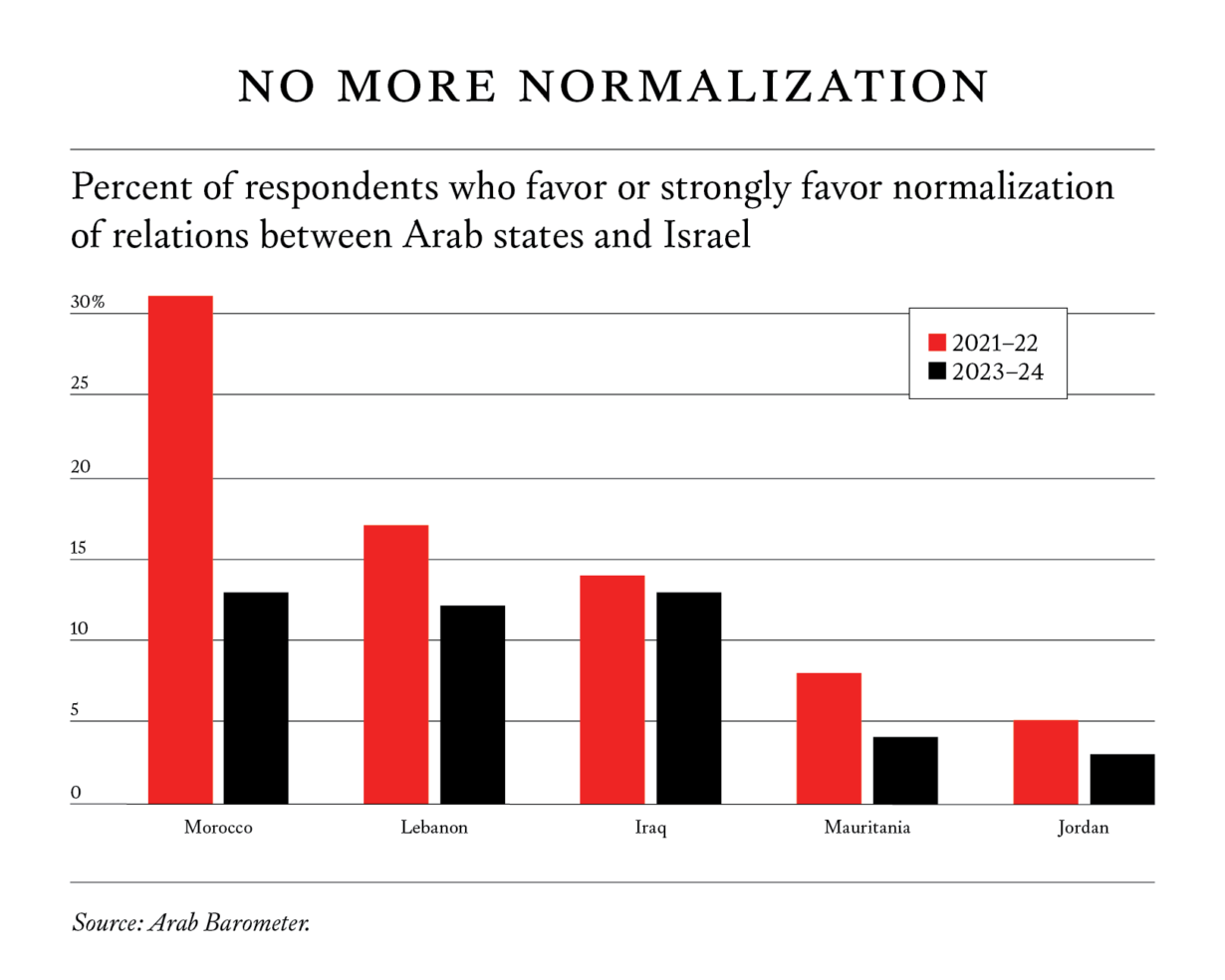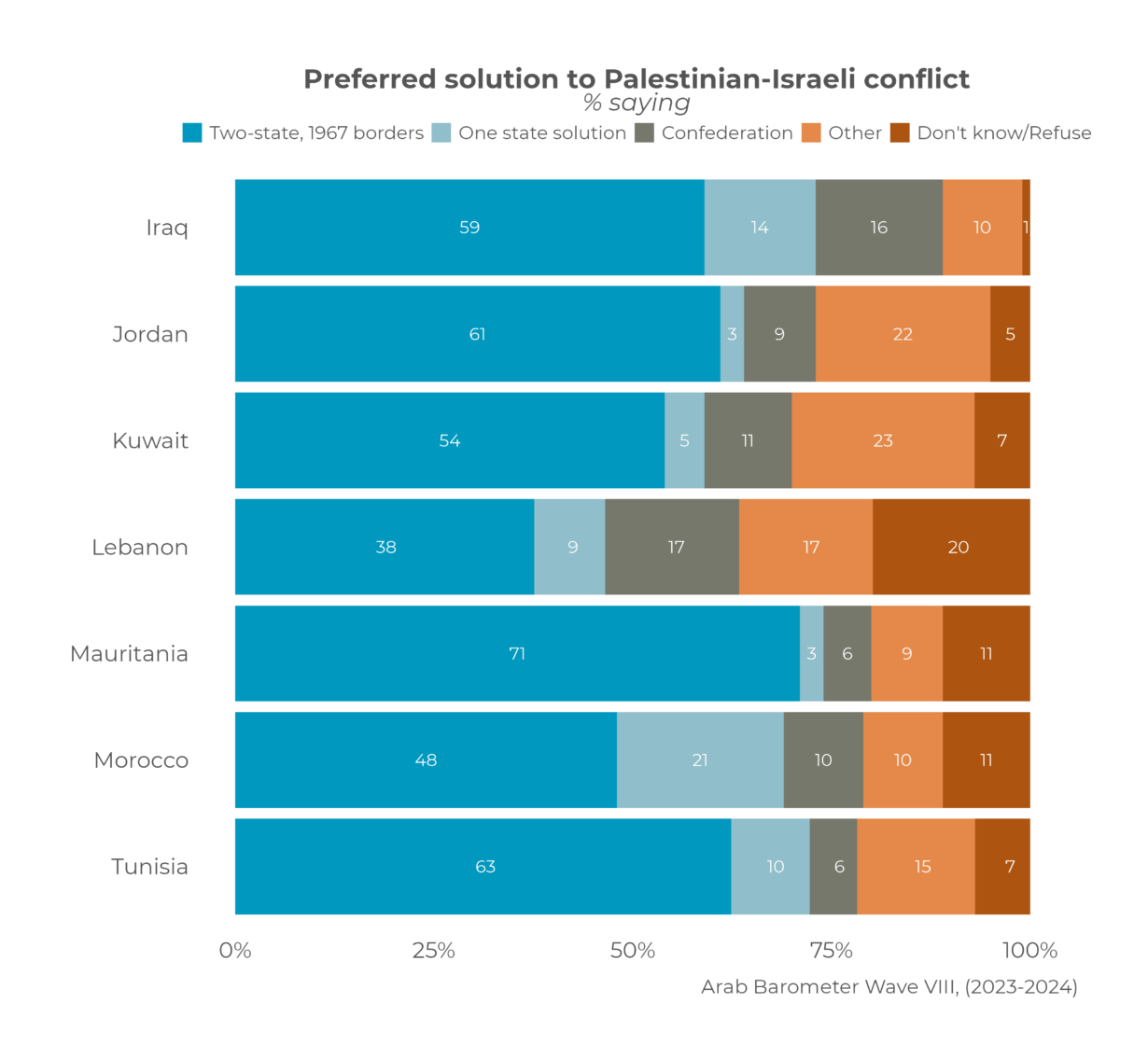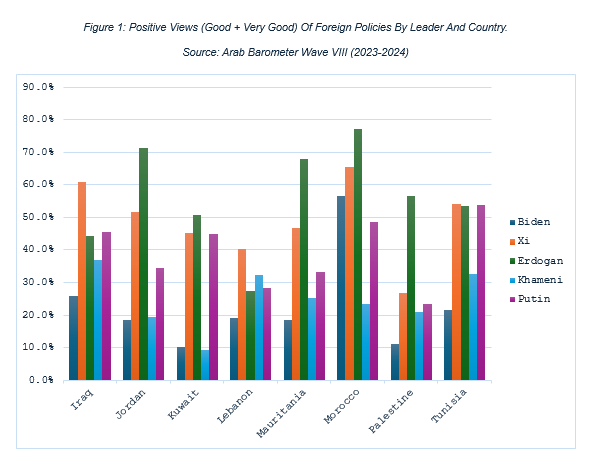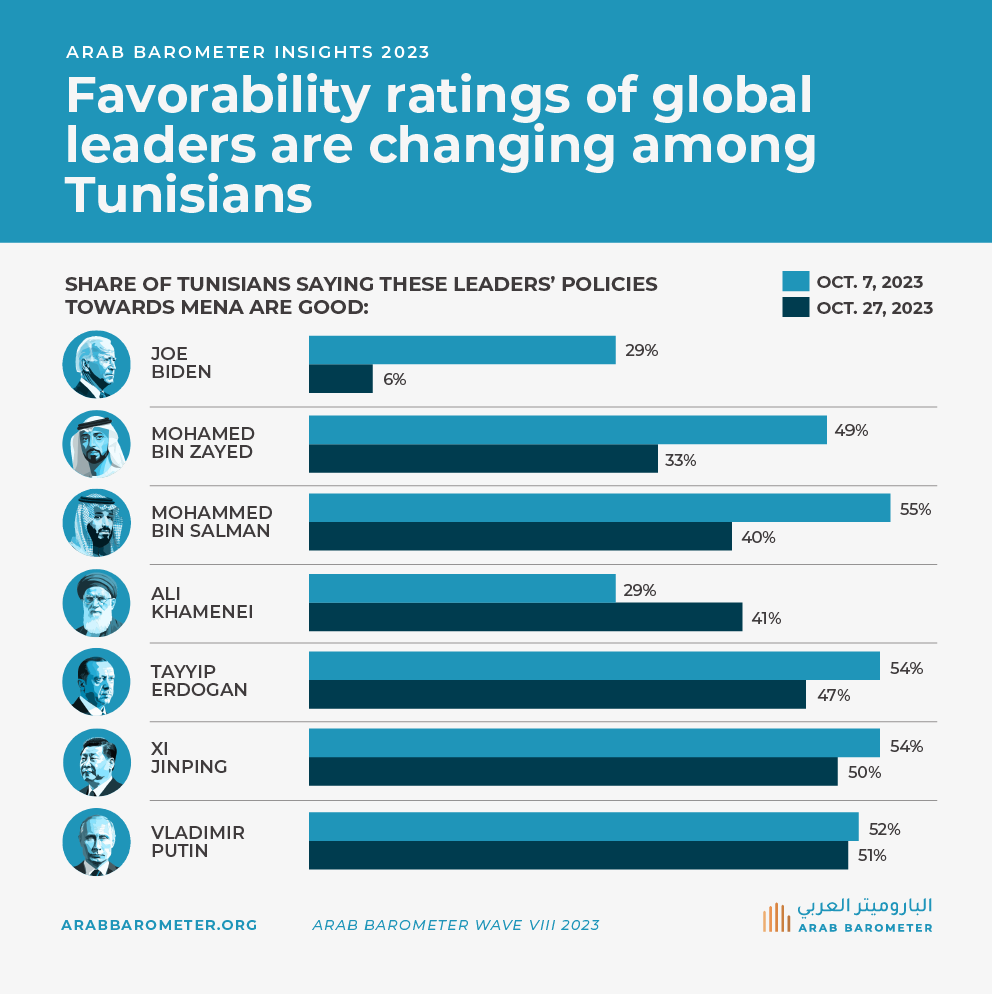The Munich Security Conference (MSC) today released the Middle East Consultation Group (MECG) report at the opening of its 62nd annual conference (February 13–15), featuring Arab Barometer’s Wave IX public opinion findings. The report draws on nationally representative surveys conducted in Palestine, Israel, Lebanon, Syria, Egypt, Jordan, and Morocco to inform its analysis of regional cooperation and security, political transitions,…
